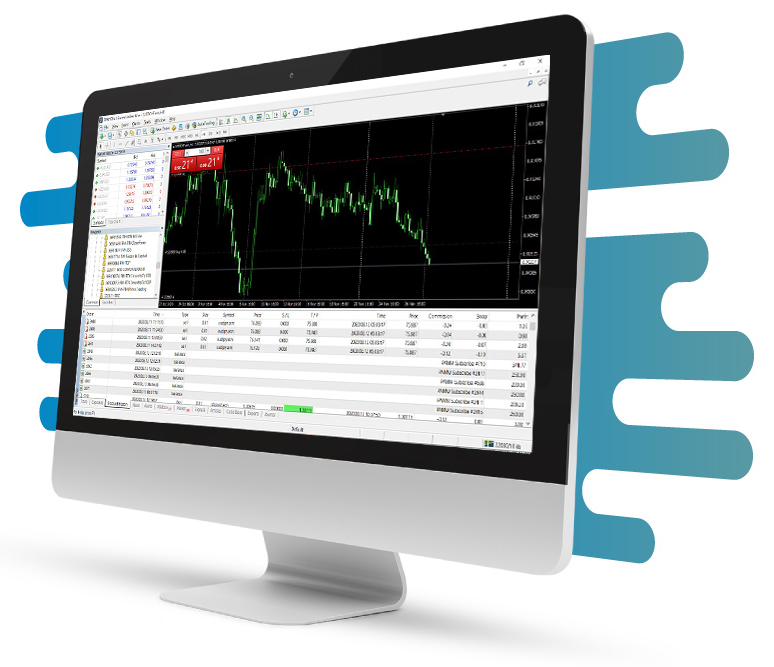Welcome to the digital age, where technology is transforming every aspect of our lives, including how we manage and grow our wealth. One exciting development in the world of finance is the intersection between self-managed super funds (SMSFs) and cryptocurrency. If you’re wondering what this means for your financial future and how you can leverage this new opportunity to build wealth, then you’ve come to the right place. In this blog post, we’ll explore what SMSFs are and delve into how you can use cryptocurrency within your SMSF. But before we dive in, let’s take a moment to understand why these two concepts go hand in hand in today’s fast-paced digital landscape. So grab your virtual wallet and get ready to embark on a journey toward financial freedom!
What is an SMSF?
A self-managed super fund (SMSF) is a type of superannuation fund that provides individuals with the ability to take control of their retirement savings. Unlike traditional super funds, where investment decisions are made by professional managers, SMSFs allow you to have full autonomy over how your money is invested.
One of the main advantages of having an SMSF is the flexibility it offers. With an SMSF, you can choose from a wide range of investment options such as shares, property, cash, and yes – even cryptocurrencies! This gives you the opportunity to diversify your portfolio and potentially earn higher returns.
But with great power comes great responsibility. Managing an SMSF requires time, effort, and expertise. You’ll need to stay on top of regulatory requirements, ensure compliance with tax laws, and make informed investment decisions.
It’s important to note that investing in cryptocurrency within your SMSF carries its own set of risks. Cryptocurrencies are highly volatile and subject to frequent price fluctuations. Lack of regulation in the crypto space also means there’s potential for fraud or hacking incidents.
Before diving into cryptocurrency investments within your SMSF, it’s crucial to do thorough research and seek advice from professionals who specialize in both self-managed super funds and cryptocurrency investments. Remember: knowledge is key when venturing into this new frontier!
So now that we have a better understanding of what an SMSF entails let’s explore how you can harness the power of cryptocurrencies within your self-managed super fund!
How can I use Cryptocurrency in my SMSF?
Cryptocurrency has become a hot topic in the world of investments, and many individuals are wondering how they can incorporate it into their Self Managed Super Fund (SMSF). If you’re intrigued by the idea of diversifying your SMSF portfolio with digital currencies, here are some ways you can do so.
You’ll need to ensure that your SMSF trust deed allows for investment in cryptocurrencies. It’s essential to review and update your trust deed accordingly before proceeding. Once this is done, you can start exploring different cryptocurrency platforms and exchanges where you can buy and sell digital assets.
One option is to directly purchase cryptocurrencies through a reputable exchange platform using funds from your SMSF account. This method gives you full control over your digital assets within the fund. Alternatively, there are now cryptocurrency funds specifically designed for SMSFs that allow investors to indirectly access the crypto market without having direct ownership.
When investing in cryptocurrency within an SMSF, it’s crucial to keep track of transactions carefully. The ATO requires accurate record-keeping for tax purposes, including details such as transaction dates, prices paid or received, and any relevant fees incurred during trading activities.
As with any investment strategy involving riskier assets like cryptocurrencies, it’s important to consider potential risks when incorporating them into your SMSF. Cryptocurrency markets are notoriously volatile and subject to rapid price fluctuations. Therefore, thorough research into each coin or token is crucial before committing any funds.
Additionally, security measures should be taken seriously when dealing with cryptocurrencies since they are prone to hacking attempts and scams. Consider implementing strong password protection on all accounts associated with your SMSF’s cryptocurrency holdings and stay vigilant against phishing attempts or fraudulent schemes targeting digital asset holders.
Using cryptocurrency in your SMSF offers exciting possibilities for diversification if done correctly but comes with inherent risks that must be managed effectively. Always consult professionals experienced in both superannuation regulations and blockchain technology when considering adding digital currencies to your self-managed super fund. Remember to regularly review and adjust your investment strategy as the
What are the risks of using Cryptocurrency in an SMSF?
In today’s digital age, cryptocurrencies have become a popular investment option for many individuals and businesses. With their potential for high returns and decentralized nature, it’s no wonder that some investors are considering incorporating them into their self-managed super funds (SMSFs). However, before diving headfirst into the world of cryptocurrency within your SMSF, it is essential to understand the risks involved.
1. Volatility: One of the primary risks associated with investing in cryptocurrencies is their inherent volatility. The value of these digital assets can fluctuate dramatically in short periods, which can lead to significant gains or losses. This volatility may not be suitable for conservative investors or those approaching retirement who cannot afford substantial fluctuations in their fund balances.
2. Lack of regulation: Unlike traditional financial markets, the cryptocurrency sector operates with limited regulations and oversight. This lack of regulatory framework makes it more susceptible to fraud, market manipulation, and security breaches. Investing through an SMSF does offer some level of protection; however, there are still risks associated with holding cryptocurrencies outside established financial systems.
3. Security threats: Cryptocurrencies are stored in digital wallets that require cybersecurity measures to protect against hacking or cyber theft attempts. If proper security protocols are not followed diligently by both the investor and any third-party custodians involved – such as exchanges or wallet providers – there is a risk that funds could be lost permanently.
4. Technological challenges: Investing in cryptocurrencies requires a certain level of technical expertise and understanding of blockchain technology. Without adequate knowledge or experience managing digital assets securely within an SMSF structure, there is a risk of making errors such as sending funds to incorrect addresses or losing access to accounts due to forgotten passwords.
5. Liquidity concerns: While major cryptocurrencies like Bitcoin and Ethereum have relatively high liquidity levels at present, smaller altcoins may face liquidity challenges during times of market downturns or increased selling pressure from other investors. This lack of liquidity can make it difficult to execute trades at desired prices or convert digital assets back into traditional currencies as




